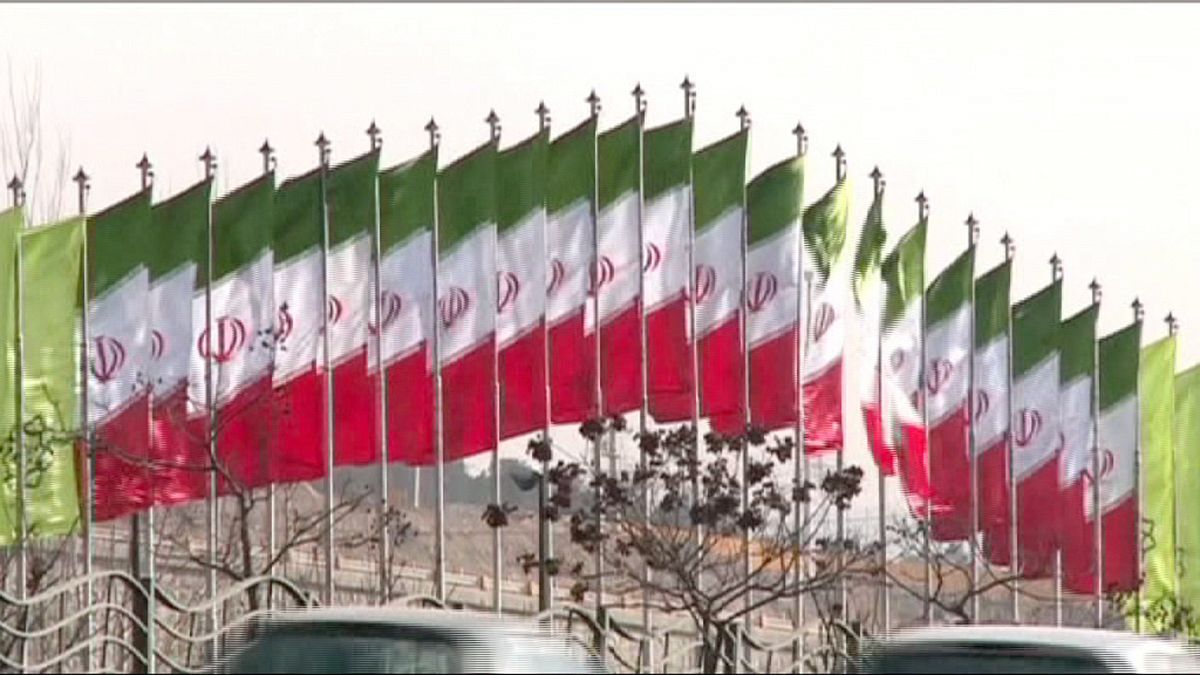Iran has eased up on its uranium enrichment programme, the International Atomic Energy Agency has confirmed.
After years of standoff, an interim deal to resolve differences was reached last November in Geneva, between the Islamic Republic and six major powers.
In return, some economic sanctions against Tehran are relaxed.
Iran agreed to stop production of uranium enriched to a fissile concentration of 20 percent and to convert its stockpile of this higher-grade uranium. It froze enrichment at Natanz and Fordow and stopped work on the Arak heavy water reactor.
In exchange, the US, Russia, China, Britain, France and Germany for six months suspend import-export and financial constraints – moves valued at some five billion euros.
That value could depend on Western companies’ desire to resume trade with Iran. But it means Iran can get back into oil and precious metal markets, and bring in automobile industry supplies. Money transfer ceilings and access to Iranian funds held in foreign banks are also eased.
However, since most of the sanctions remain in place for now, 22 billion euros of oil revenue is still locked up for these six months, and 74 billion euros in assets abroad.
Now the five permanent members of the UN Security Council plus Germany (5+1) want to negotiate a final accord defining the scope of Iran’s nuclear activity – which Tehran says has no military goals. Western powers have long harboured fears that it does.
Iran has 19,000 uranium enrichment centrifuges. The West wants that dropped to three or four thousand.
The sanctions have battered Iran’s economy. Inflation has been at 40 percent, unemployment at 20 percent. Private sector activity has been cut to half its potential. But the interim deal is a beginning, many Iranians hope, that holds out the best prospects for improvement in years.
On the first day of implementing the interim agreement between Iran and the 5+1 nations, Iran took a range of actions including halting the 20 percent enrichment of uranium. This is regarded as an important step towards building confidence between Iran and the international community. But is this step a practical guarantee for putting an end to Iran’s nuclear challenge?
Euronews discussed this with Iranian political analyst, Reza Taghizadeh.
Nima Ghadakpour, euronews:
Mr. Taghizadeh, the latest news is that the European Union has also suspended some of the sanctions it had imposed on Iran. What is your view on that?
Reza Taghizadeh:
There have been commitments between the European Union and the United States regarding their voluntary actions and those of Iran. These include the suspension of the 20 percent enrichment of uranium at the Fordow and Natanz sites and also other commitments that Iran had accepted, such as halting the work at the Arak heavy water reactor.
The EU has also agreed to reciprocate. So the easing of sanctions was ceremonially approved today in Brussels. This is a small step on the EU’s part, but for Iran it’s a big step and signals the retreat from a stage that could turn Iran into a nuclear military power.So this is a very important development for the region.
euronews:
Does the start of the implementation of the agreement seem promising; both technically and politically?
Reza Taghizadeh:
Undoubtedly. It seems that both sides are voluntarily taking steps in the right direction. They’re just small steps for the moment, but the results could be important for regional peace and for nuclear disarmament in the rest of the world.
euronews:
You talked about peace in the region. In your view, what challenges lie in the way of finalising the agreement and continuing the talks?
Reza Taghizadeh:
Iran’s government is a small part of the Islamic Republic Regime. The hardline branches of the Islamic Republic, particularly the military [Islamic Revolution Guards Corps] and the staunch members of parliament, do not agree with the deal between Iran and the 5+1 nations. They believe that the agreement will reach a head-on collision midway.
In the region, both Saudi Arabia and Israel are against advancing the talks from their present stage to the final phase. So, they will use their own powers to stop this – particularly where decisions taken by the US are concerned.
In the US Congress, there are more opponents than supporters of the interim deal. These two factors – at home and at an international level – will possibly hinder talks. But it seems that if the governments of Mr. Obama and also President Rouhani of Iran have enough support in their own countries, they will be able to take the steps towards a final stage and therefore change the situation in the region from one of nuclear crisis to a more politically stable footing.


